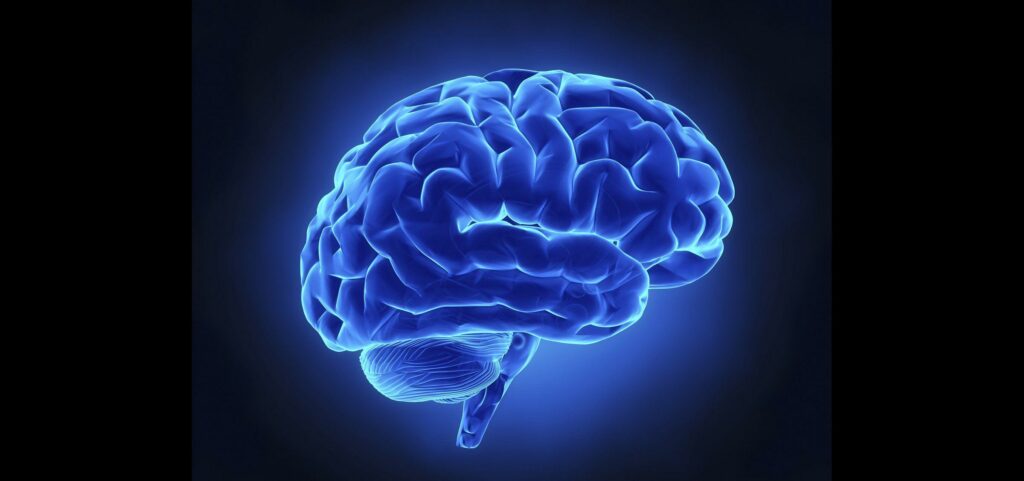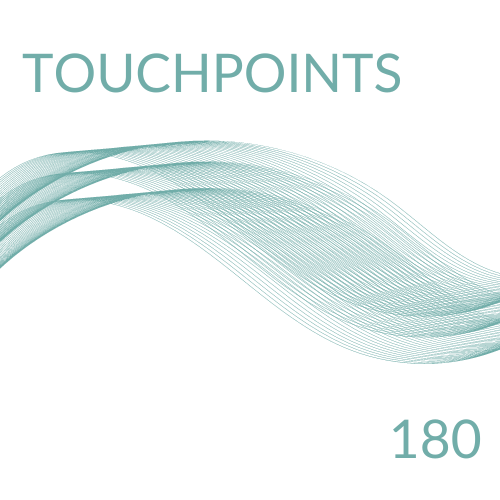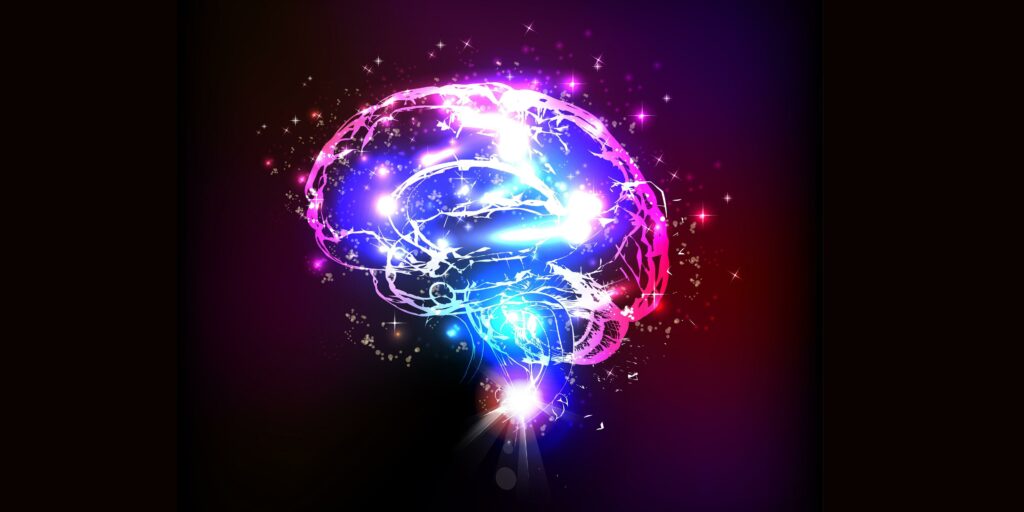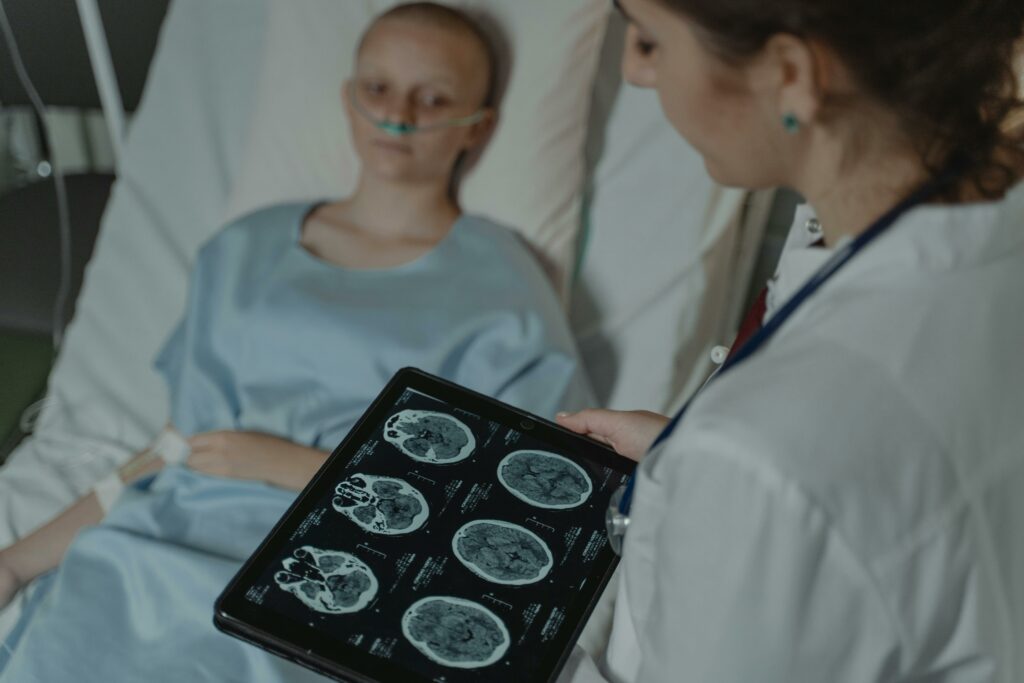
The most remarkable, neuroscience-driven advances in psychiatry, are emerging after decades of research and evidence-based experience known as metabolic psychiatry. Metabolic psychiatry is all about understanding the connections between psychiatric symptoms and metabolic dysfunction. We’ve talked often about the reality that the brain is part of the body, and what goes on in the body affects the brain. If metabolic health is suffering, psychiatric health can not be at its best. If the mitochondria are suffering from energy shortage due to insulin resistance, so is the mitochondria in the brain. And when the brain’s energy is restricted, its compromised ability to function well results in symptoms like memory loss, brain fog, erratic shifts in mood and behavior, depression, and anxiety. But metabolic psychiatry’s secret weapon is therapeutic nutritional ketosis. More about that ahead.
Pearls from Dr. Ede

Dr. Georgia Ede, a psychiatrist who specializes in nutritional and metabolic approaches to psychiatric symptoms, recently joined an interview with Dr. Bret Scher, the director of Metabolic Mind, and Carlene MacMillan, Chief Medical Officer of Osmind. They discussed a subject you know is dear to my heart, which is how a ketogenic diet can improve brain health so beautifully that you can actually achieve remission.
It may surprise you to know that over 50% of all adults in this country suffer from insulin resistance, or the inability in the cells for insulin to process glucose. And that causes problems…lots of problems! It causes high blood sugar levels throughout the body because the cells aren’t able to pull the glucose out of the blood stream and put it to work in the cells.
And even worse, it keeps the brain from processing glucose, which creates an energy crisis for the brain. As we’ve talked about before, the brain is part of the body, and your metabolic health incorporates every organ in your body. When insulin resistance impairs your body’s ability to process glucose, all your organs suffer damage.
Crisis of Brain Energy
So, it’s vital that an alternate fuel source for the body, and especially the brain, is provided. When you consume a ketogenic diet, your body makes the shift from relying on glucose, to relying on ketones for fuel. Ketones don’t need insulin to be used in the cells, so it’s a limitless source of fuel.

Because the brain uses so much energy – a full 20% of what the entire body uses – it’s vital that its energy source be readily available and inexhaustible. And it is, as long as you’re eating ketone producing foods…or ketogenic foods…and your body’s fat stores serve as a supplement.
Metabolic Evaluation is Vital
Dr Ede talked about her wish to see every psychiatrist do a metabolic evaluation as part of the intake assessment of each patient. Every patient with psychiatric symptoms deserves a metabolic evaluation to see if there is metabolic dysfunction involved—because it can be so readily reversed. Everyone needs to know about evidenced-based ways to change their lifestyle to improve their overall wellbeing, as well as their psychiatric condition. Whether they incorporate a ketogenic diet or not, they need to see how they might improve their metabolic health. You can’t have excellent mental health unless you’re metabolically healthy as well. And honestly, metabolic psychiatry’s secret weapon is, after all, nutritional ketosis. That’s what causes the change and improvement.

I heartily agree, and a comprehensive metabolic evaluation is just one part of our deep-dive assessment for our TouchPoints 180™ program.
So, these are the elements she suggested for that assessment. Because when you use A1C as a marker for metabolic health, it’s not effective, — because it’s a measure of Type 2 diabetes after it has already taken hold. And it’s important to keep in mind that it can take up to 20 years of high-carb eating for Type 2 to develop. So the key is to discover the metabolic dysfunction before it does.

So what you really want to know is how much insulin your body is actually having to pump out day after day to counter the carbohydrate load you’re eating in order to maintain your fasting blood sugar in a normal range. She made the point that those climbing insulin levels are damaging your physical health — and your brain metabolism.
Brain Metabolism
When we refer to brain metabolism, we’re talking about the ability of your brain to turn glucose into energy. We test for the fasting insulin level, which should ideally be under 5. Yes, under 5. (In our practice, we actually run tests to determine your insulin resistance score, which gives you a numbered score if you are insulin resistant.)

You also should check triglycerides, which should be below 100mg/dL, and better yet, below 80 mg/dL. You want HDL to be above 40-50 (pushing 100 is better) and you want your waist circumference to be less than half your height.
As you can see, these are simple measures, easily available, and can easily give you a ballpark idea your current metabolic health—and there are many more sophisticated tests which take a deeper dive. When these numbers are out of whack, it’s a good indication that your metabolism needs an intervention.
The beauty is, that you can change these numbers very quickly with a ketogenic diet. Amazingly, you can drop your fasting insulin and triglycerides in days or weeks. You don’t have to lose 50 pounds to begin to see important changes! You just need to get your body metabolizing fat, and achieve nutritional ketosis.
Metabolic Psychiatry’s Secret Weapon

In fact, the ketogenic diet is not the only dietary intervention that will achieve this. The carnivore diet, or a vegetarian diet that’s low carb and high in fat, and that is properly formulated with the best quality proteins and all of the micronutrients you need. You can find a diet that helps you achieve therapeutic nutritional ketosis. It can be an adapted from carnivore, vegetarian, mediterranean… the goal is to find a dietary intervention that works for you; it just needs to help you maintain a consistent state of ketosis.
And it needs to fit your life.
This isn’t a solution that addresses the superficials. This solution attacks the root cause. Metabolic dysfunction throughout your body causes damage to your organs and brain because of an energy crisis in your mitochondria. It’s vital to improve your metabolic health by natural means.
What About GLP-1?
Dr. Ede states that GLP-1 such as Ozempic and others can help with some of these same things. But they are not what we recommend for our patients — they do not offer the sustainable cellular benefits of nutritional ketosis and have many potential short and long-terms side effects: continued use, weekly injections, huge monthly costs and copays, etc. The good news is that the same and more can be achieved with ketosis. Through a ketogenic diet without copays, without side effects, and without injections that disrupt your normal metabolic function, you can achieve remission.

I agree with her that a huge advantage to seeking metabolic health through dietary intervention is that it puts the power in your hands. We teach our patients how to do this, and offer dozens and dozens of personalized opportunities to help them make it happen. Unlike the old paradigm where the doctor prescribes the medication, and the patient takes it. In this approach, you learn to wield this tool to cultivate your own metabolic health.
It’s empowering, confidence building, and improves your own autonomy. It makes you proud of yourself to know you’ve made your body and mind healthy by changing your lifestyle and food choices.
You can give someone a fish, and they’ll eat a meal. But if you teach them to fish, they’ll have the knowledge to be able eat for the rest of their lives.
Education about metabolic health empowers people to restore their own metabolic health. And to restore their physical health and mental health as a result.
Why Does Ketosis Help Alzheimer’s, Bipolar Disorder, and Schizophrenia?

Metabolic psychiatrists know that if you have insulin resistance you don’t just have a blood sugar problem, you also have a brain sugar problem. The brain cannot utilize glucose without adequate insulin. Over time, slowly, the brain is losing its glucose processing power. By the time you notice any memory problems (this sets the stage for Alzheimer’s by the way) you can already have lost 25% of your brain’s glucose processing power. So you need a supplemental fuel source as a result. Ketones bridge that energy gap for you. They don’t need insulin to fuel brain cells. So the brain cells can go back to work doing their job at an optimum level. Because they’re fueled with ketones.
The key is ketosis. And it triggers a cascade of changes that put the brain cells back on their feet.
If You Suffer From Psychiatric Symptoms
Maybe you have tried prescription medications that haven’t improved your symptoms, or maybe psychotherapy hasn’t helped, either. Maybe you’ve been told your condition is “treatment-resistant.” Metabolic psychiatry may not be the solution to every single psychiatric issue, but it’s in your best interest to find out if it might help yours.

When you consider that more than half of all adults in the US suffer from insulin resistance, and insulin resistance contributes to psychiatric suffering, it’s not such a bad idea to find out if your symptoms could be related to your metabolism, your mitochondria, and the way your body and brain use energy and signaling.
Metabolic psychiatry’s secret weapon is therapeutic nutritional ketosis.
Join us in our TouchPoints 180™ program, and take charge of your own health, physically and mentally. Take back your life and your wellbeing.
We’re all about helping you build your life at its best.

To the restoration of your best self,
